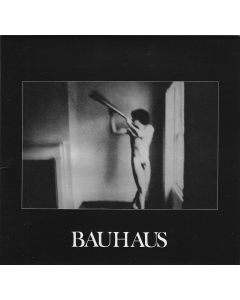Bauhaus
PAST MASTERS
In the early 1980s, Bauhaus were one of Britain's most revered cult bands. Pioneering a raw post-punk sound as spiky and jagged as their cheekbones, this etiolated Northampton quartet enjoyed four prolific years of fringe success before disbanding in 1983. But this summer, after 15 years of silence and obscure solo projects, the band reunited for a clutch of low-key American dates. Their reception was warm, but it scarcely anticipated the hysteria which greeted the first of two packed shows at London's Brixton Academy on Saturday night. Even now, with a whole raft of their 1980s peers on the comeback trail, Bauhaus still look and sound impressively ageless and original. Their tribal beats and abrasively detuned guitars may have been absorbed into the common grammar of pop, but there was little evidence of Post-Modern nostalgia. The band's singer Peter Murphy might still owe a heavy debt to David Bowie, but he never lapsed into self-parody during an electrifying 90-minute set. Perhaps because Bauhaus were always more of a cult than a mainstream band, the show lacked the crowd-pleasing cosiness of a greatest hits package. It balanced melodramatic singles including She's in Parties and The Passion of Lovers against the brooding ballad Hollow Hills and the disco-tinged howl of Kick in the Eye. But the most rapturous reaction was reserved for savage cover versions of Marc Bolan's Telegram Sam and Bowie's Ziggy Stardust. Bauhaus are reminders of an era when experimentation and performance art were part of pop's staple diet. But even their most self-consciously theatrical number, Bela Lugosi's Dead, proved more fascinating for its primitive techno beat than for its grand guignol lyric about vampires and virgins. It provided a suitably histrionic climax to a triumphant evening of designer darkness.
STEPHEN DALTON - The London Times
10 November 1998
In the early 1980s, Bauhaus were one of Britain's most revered cult bands. Pioneering a raw post-punk sound as spiky and jagged as their cheekbones, this etiolated Northampton quartet enjoyed four prolific years of fringe success before disbanding in 1983. But this summer, after 15 years of silence and obscure solo projects, the band reunited for a clutch of low-key American dates. Their reception was warm, but it scarcely anticipated the hysteria which greeted the first of two packed shows at London's Brixton Academy on Saturday night. Even now, with a whole raft of their 1980s peers on the comeback trail, Bauhaus still look and sound impressively ageless and original. Their tribal beats and abrasively detuned guitars may have been absorbed into the common grammar of pop, but there was little evidence of Post-Modern nostalgia. The band's singer Peter Murphy might still owe a heavy debt to David Bowie, but he never lapsed into self-parody during an electrifying 90-minute set. Perhaps because Bauhaus were always more of a cult than a mainstream band, the show lacked the crowd-pleasing cosiness of a greatest hits package. It balanced melodramatic singles including She's in Parties and The Passion of Lovers against the brooding ballad Hollow Hills and the disco-tinged howl of Kick in the Eye. But the most rapturous reaction was reserved for savage cover versions of Marc Bolan's Telegram Sam and Bowie's Ziggy Stardust. Bauhaus are reminders of an era when experimentation and performance art were part of pop's staple diet. But even their most self-consciously theatrical number, Bela Lugosi's Dead, proved more fascinating for its primitive techno beat than for its grand guignol lyric about vampires and virgins. It provided a suitably histrionic climax to a triumphant evening of designer darkness.
STEPHEN DALTON - The London Times
10 November 1998

